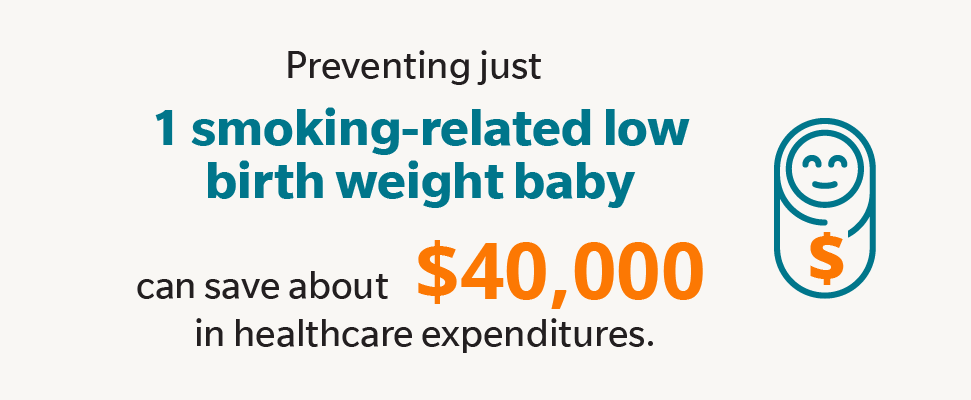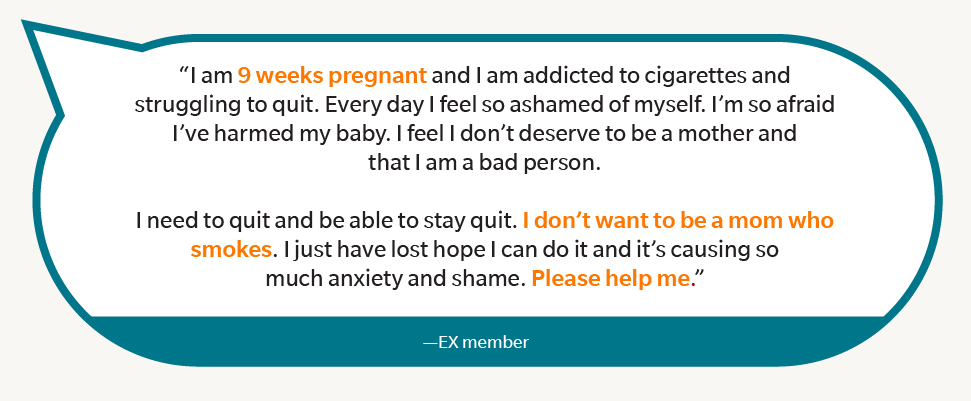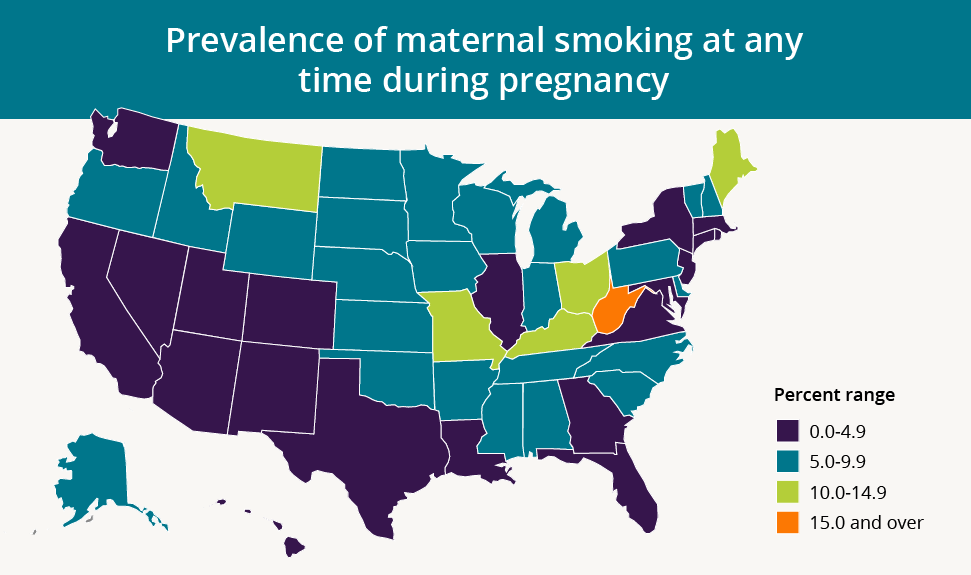Promoting cessation programs to women who are smoking while pregnant can be a complex issue.
Why?
For health plans, healthcare systems, and employers, it can be difficult to know if a pregnant woman is using tobacco unless she discloses the addiction.
Fortunately, there are still ways you can help.
Impact of Smoking while Pregnant
Smoking cigarettes while pregnant is harmful to both mother and child. Tobacco use during pregnancy is linked to poor health outcomes, including:
- Preterm birth, low birthweight, and miscarriage
- Birth defects of the mouth and lip
- Abnormal bleeding during pregnancy and delivery
- Damage to a baby’s developing lungs and brain that can last through childhood and into teen years
- Increased risk of sudden infant death syndrome (SIDS)
Smoking during pregnancy is also costly. The total cost of neonatal healthcare in the U.S. due to smoking during pregnancy is an estimated $366 million annually. Preventing just 1 smoking-related low birth weight baby can save about $40,000 in healthcare expenditures.
Who is Most Likely to Be Smoking While Pregnant
In our online EX Community of current and former tobacco users, pregnant women share the devastating effects of this addiction, including this woman who posted:
That community member is far from alone, although she might feel that way.
According to the CDC, the average smoking rate among pregnant women is about 5%. However, the rate is higher than that in 31 states. The highest smoking rate during pregnancy is in West Virginia (18%), followed by Kentucky (12%), and Maine (10%).
What Works to Engage Women in Quitting Smoking while Pregnant?
Pregnancy can be a powerful motivator to quit. And pregnant women who quit smoking during the first trimester can deliver infants that are of comparable weight and height to those of non-smoking women.
Here are a couple of approaches to promoting tobacco cessation to women who are pregnant that can make a difference, and address this population in a respectful, caring, and meaningful way.
Use the Right Messaging
As the quote from an EX Community member above demonstrates, pregnant women who use tobacco already feel shame. As a result, many will hide their tobacco use from others rather than face harsh judgment.
To increase confidence in quitting, messaging in promotions needs to be supportive rather than scolding. It can also help to use nonjudgmental language that ideally focuses more on gain-framed messages when quitting (vs. loss-framed messages), according to a study published in Addictive Behaviors Reports.
For example, 3 messages this study cited as rating highest for effectiveness include: “When you quit smoking, you take control of your own health and the health of your baby”; “Quitting smoking can prevent harm to you and your baby”; and “There are lifelong benefits to children growing up in a smoke-free environment.”
Be Creative with Materials
Including messaging in standard promotions, such as through social posts and posters/flyers, are important, but it’s also crucial to use other channels, too. When it comes to engaging people to action, one touch point is rarely enough.
For health plans and community healthcare systems, for example, this could mean promoting smoking cessation through:
Widely promoting your quit-tobacco program can help not only those employees or members who are pregnant, but also family members or spouses who may be looking for resources like these.
Promote Easy-Access, Evidence-Based, Tailored Support
At the EX Program, we offer digital, people-powered resources that are specifically tailored to pregnant women and new moms. To take an inside peek at these resources, see our short overview below.
Contact us today to learn more about how we can help you give pregnant women and new moms the right tools to quit tobacco.














